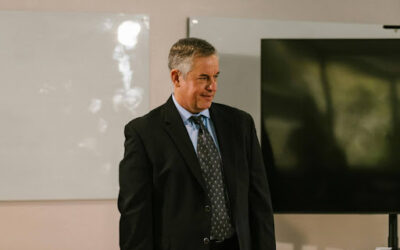We know that diversity, equity and inclusion needs span a vast range: executive coaching for your DEI leaders and DEI allies, coaching others on sensitive topics including DEI issues, and even training for your wider population on how your company approaches diversity, equity and inclusion. We have you covered on all those fronts, and crucially, we have a variety of DEI coaches who can deeply understand the needs and challenges of your employees around these issues.
Our diverse and expert coaches can support the leaders who are grappling with their own experience or those of other DEI employees, provide training in DEI issues for allies and others, or integrate topics of diversity and inclusion into the coaching of employees for whom this is a new conversation.
Challenging coaching calls for those with the compassion and expertise to handle to conversation.

Coaching for DEI Leaders and Allies
Expert, Certified, Diverse Coaches

We coach in the Diversity, Equity and Inclusion Space:
Senior leaders
DEI allies
Group programs that include DEI topics
Workshops on Equity and Inclusion
Keynotes on Ally-ship
Certified, experienced, diverse coaches
Our DEI Coaching Philosophy: Insight + Action = Results
Coach Selection Process
In order to deliver the most value to our clients and their companies, we believe that it’s critical that an executive chooses a coach whose style matches their personality—that’s why we encourage our clients to interview up to three of our coaches to guarantee the best fit.
Diverse, Experienced Coaches
Real Results
Convenience and Flexibility
The Arden Difference
The Power of the Arden Process

Selection
First things first: we set up an initial conversation to help determine the appropriate program for the executive, as well as set up interviews with the three coaches that are the best fit for their needs and goals. In this stage, we are looking to match the executive’s style with that of the coach to create a coaching relationship that delivers maximum results.

Alignment
At the start of each engagement, the coach, the executive, and their supervisor meet to determine the goals of the coaching. Because all of our executive coaching programs are results-driven, it’s critical to set appropriate goals and ensure that the executive, the supervisor, and the company can all realize the benefits of the coaching.

Assessment
When an executive enrolls in a program with the intent to change, measuring the ability and skill level at the outset is a critical first step in setting goals and building a plan to reach them. The coach will select from an array of assessments to select the tools best suited to help the executive gain insight into their unique style and potential areas for growth.

Work the Plan
With feedback from colleagues and a personalized development plan in place, the executive and the coach work through the strategy. They meet regularly to discuss challenges, best practices, and successes, with the coach helping the executive identify and understand their patterns, as well as focus on opportunities for improvement. At the midpoint of the partnership, we once again assess the executive’s progress through a meeting with their supervisor and course-correct, if needed. At the conclusion of the engagement, the executive, supervisor, and coach review the progress and identify any next steps necessary to continue the executive’s growth to ensure a long-term shift in behavior.
Executive Coaching and Leadership Blogs
The Strategic Power of Vulnerable Leadership in Uncertain Times
Imagine this: an executive leader is told that a product the company has been preparing to unveil is not ready and has a flaw that cannot allow it to go to market in time. She is inundated with...
Team Accountability Isn’t What You Think It Is
by Jonathan Sachs, MBA, FACHE, PCC Team accountability is a critical leadership concept—but it's often misunderstood. Many organizations struggle to hold people accountable in a way that is fair,...
Balancing the Climb: Negotiating Trade-Offs in Value-Based Conflicts
By Andreas Schumacher, PhD, PCC Please meet Mark. Mark is a 41-year-old portfolio director at a growing tech firm. He’s ambitious and recently got shortlisted for a VP- role. The promotion would...
How Executive Leadership Coaching Helps Leaders Redefine Failure
Throughout our lives we are conditioned to fear failure. We are told that failing is a referendum on ourselves and that we must avoid it at all costs. But what if we could reframe failure to be an...
Navigate Through Significant Changes By Focusing On Purpose
By Hien DeYoung, CHIC, PCC In today's rapidly changing world, the guidance we once relied on may no longer be relevant. As we face these significant changes, it's essential to find new ways to...
She’s Brilliant in Her Field—So Why Doesn’t Her Team Want to Work With Her?
Communication coaching for executives strengthens leadership by refining how they connect, influence, and inspire. One of your top executives is exceptional at what she does. She is a recognized...
Building High-Performance Teams: Strategies for Achieving Optimal Results
By: Julianna Hynes, Ph.D., PCC While some of my executive clients come to coaching to work on more personal goals such as building relationships, exuding executive presence, and communicating...
When Your Next CEO Has the Vision But Lacks the People Skills
Leadership Coaching for Visionary Leaders Who Struggle with People Skills A brilliant strategist. A forward-thinking innovator. A leader who sees what others don’t. The next CEO of your organization...
Rethinking Self-Care and Leadership in the Age of Burnout
By: Fran LaMattina, PhD, MCC It seems that everyone has a new or renewed interest in self-care these days. And for good reason. Many of us have never truly taken it seriously enough to be...









